Eight years ago, abortion opponents gathered on the National Mall in Washington, D.C., at a hopeful moment. A Republican president had just been inaugurated, flanked by GOP majorities in the House and Senate. Tens of thousands came from across the country ready to hear the new vice president speak.
At that time, the pro-life movement’s goal was clear: overturn Roe v. Wade, just as it had been for decades. But when the Supreme Court’s decision in Dobbs v. Jackson ended the constitutional right to abortion in 2022, both anti-abortion activists and Republicans had to recalibrate their messaging on abortion, especially after more than half a dozen states codified an expansive right to abortion through referenda or legislative action.
How to continue the pro-life agenda was still very much an issue at the 2025 March for Life. This year’s rally bore some resemblances to 2017’s: President Donald Trump had taken the oath of office with a Republican governing trifecta days earlier, and his vice president was slated to speak. The president, however, had shifted his rhetoric on abortion over the past eight years, declaring on the campaign trail that Roe’s overturn had made abortion a state-level issue, to the dismay of many pro-life advocates.
While Trump expressed his support to the thousands of marchers assembled on the National Mall in a video message Friday, it was left to his vice president, J.D. Vance, to deliver the administration’s new message to the pro-life movement, centering the conversation on supporting families while they raise children.
“I want more babies in the United States of America,” Vance said. “I want more happy children in our country, and I want beautiful young men and women who are eager to welcome them into the world and eager to raise them. And it is the task of our government to make it easier for young moms and dads to afford to have kids, to bring them into the world, and to welcome them as the blessings that we know they are here at the March for Life.”
But as Vance offered hardly any policy initiatives, the leaders of the assembled pro-life groups had differing levels of optimism about how the administration he serves in will handle the issue of abortion. Not all trust Trump’s willingness to put forth their favored abortion policies, including defunding Planned Parenthood and restricting the availability of abortion pills. The way Trump and congressional Republicans tackle these issues will indicate just how much influence the pro-life flank of the GOP—which for decades has been a key part of its ideological coalition—will have in its future.
Incoming March for Life President Jennie Bradley Lichter served as deputy director of the White House Domestic Policy Council during Trump’s first term and expressed confidence that he will continue the types of measures he instituted in his first term.
“I saw firsthand all of the great pro-life policy actions that he rolled out the first time around. So I'm really excited that Americans chose to reelect a president with a pro-life governing record and a vice president who also has a history of involvement in the pro-life movement,” she told The Dispatch.
But Jeanne Mancini, the current March for Life president who will give way to Lichter next month, was more cautious in her assessment of elected Republicans in Washington, especially after Republicans watered down anti-abortion language in the party platform last year.
“I think the jury's out,” Mancini said. “I'd like to just watch for the next few months and see.”
Just a few hours later, Trump made some moves many participants at the March for Life had been awaiting: He issued multiple executive orders undoing some of the actions President Joe Biden instituted to expand abortion rights. Most notably, Trump reinstated the Mexico City policy, a measure in place during his first term that prohibits nongovernment organizations receiving federal funds from promoting or performing abortions abroad. Since Ronald Reagan instituted the policy in 1984, every GOP president has put it into place while every Democratic one has revoked it. Trump had reinstated the policy three days into his first term but had not committed to doing so during his campaign, a fact that had not gone unnoticed by pro-life activists.
“That just gets him back to baseline, then he's got to do more,” said Kristan Hawkins, president of Students for Life of America.
Hawkins was clear that she would demand more pro-life action from Trump to continue the work he did in his first four years.
“The real challenge begins of making sure the president hears us loud and clear, that we don't think his job is done,” she said. “I've heard rumors that he thinks his job is done, and it's not. We're so grateful for him being really the most pro-life president in our nation's history. He has that title. I would like him to keep that title.”
One early way in which Trump has tested the loyalty of pro-life groups is by nominating as secretary of the Department of Health and Human Services Robert F. Kennedy Jr., who has espoused support for abortion. Marjorie Dannenfelser, president of Susan B. Anthony Pro-Life America, expressed “concerns” when the nomination was first announced. Now, she’s tying her feelings about him to how Trump governs.
“RFK’s answers have generally been, ‘My position will be the position of the administration,’ meaning President Trump. So, every day there's a new pro-life E.O., every day that there's a new pro-life guarantee or commitment, that makes us feel better, but, of course, we're still waiting.”
She said she was watching to see what actions Trump would take on abortion in the future, but Dannenfelser spoke approvingly of the things he had done since being sworn in. She welcomed Trump’s pardoning this week of pro-life demonstrators who were charged under the Freedom of Access to Clinic Entrances Act after they blocked entrances to abortion facilities. Trump and others argued that they had received especially harsh sentences under prosecution by Biden’s Justice Department because of their political beliefs.
Dannenfelser also noted Trump’s endorsement of the Born-Alive Abortion Survivors Protection Act, the opening salvo of abortion battles that will take place in Congress. Republicans introduce the bill—which requires physicians to “exercise the same degree of professional skill, care, and diligence” for children born alive from abortion as they would any other child born alive at the same gestational age—each new Congress, and each time, almost every Democrat votes against it. This year, Rep. Henry Cuellar was the only Democrat to vote for it. It passed the House this week, but didn’t reach the 60-vote threshold needed to overcome a procedural hurdle in the Senate.
Democrats have argued that the bill is unnecessary because doctors are already legally required to exercise appropriate care and because infanticide is already illegal in all states.
“It's solving a problem that doesn't exist,” Sen. Chris Murphy of Connecticut told The Dispatch. “... Let doctors and families make those decisions.”
Still, Republicans have pointed to Minnesota, for example, where Gov. Tim Walz signed a law in 2023 that gutted previous statutes designed to protect babies born alive after an abortion.
It remains to be seen whether the born-alive bill is the only abortion battle Congress fights during Trump’s administration. Oklahoma Sen. James Lankford told The Dispatch that there’s not a definitive “next step,” but he indicated at a press conference Thursday that he was open to some sort of role for the federal government on the issue of abortion, if not a federal ban.
“There is a push among some to say, ‘This is a settled issue. Dobbs is out there. That's all going to be in the states. We don't need to talk about this anymore.’ I think that actually we need to talk about it more, not less, because now we're in a national conversation—literally around the entire country—that every single state and every single community gets to be able to make decisions on this. So, let's talk about it more.”
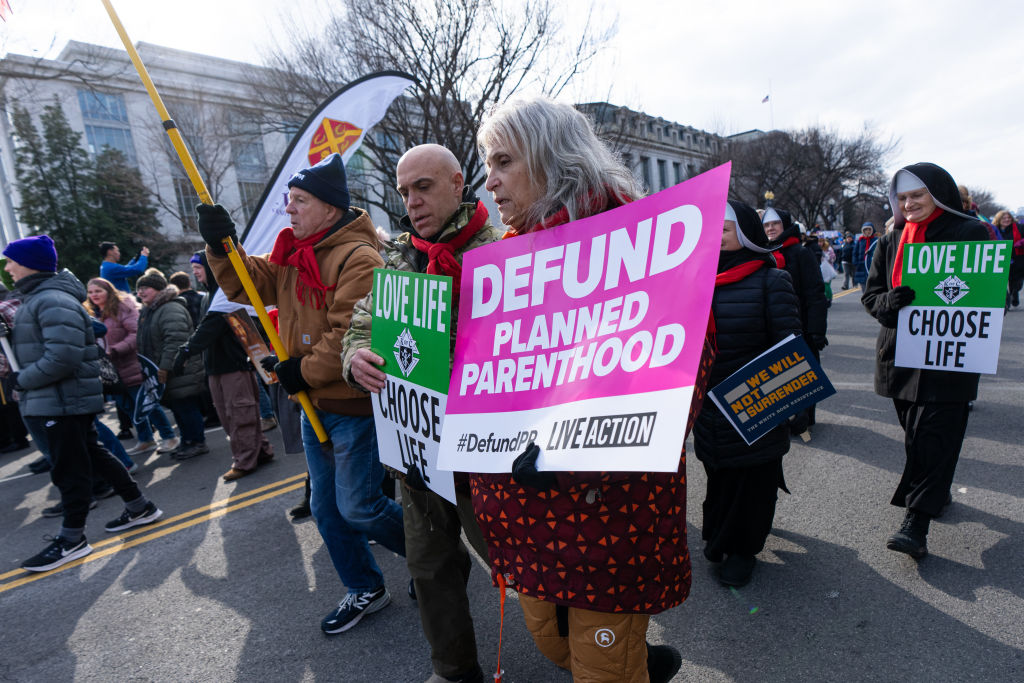

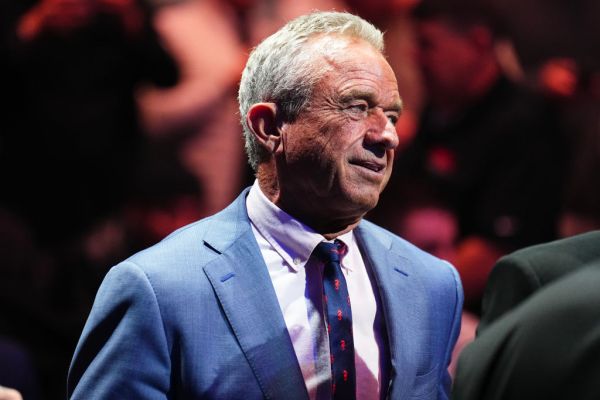
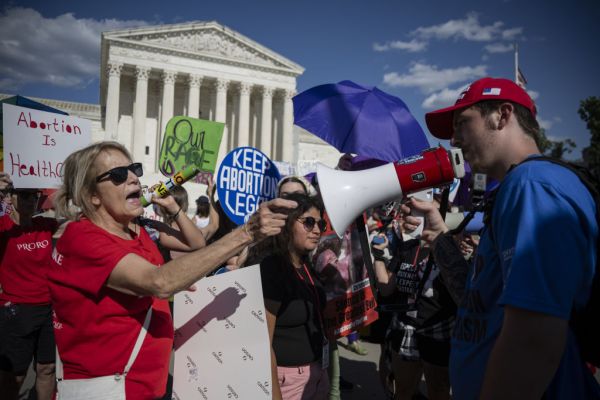
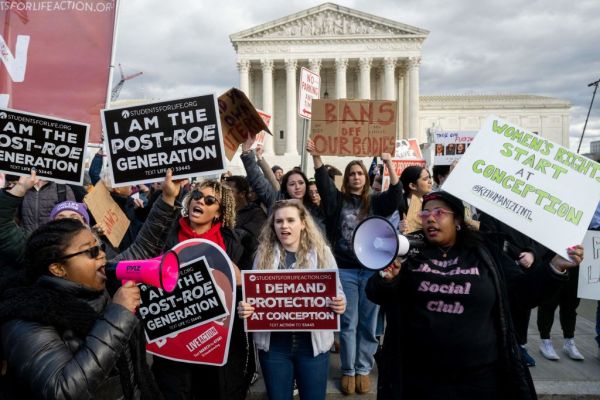

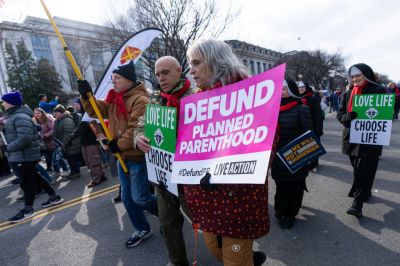
Please note that we at The Dispatch hold ourselves, our work, and our commenters to a higher standard than other places on the internet. We welcome comments that foster genuine debate or discussion—including comments critical of us or our work—but responses that include ad hominem attacks on fellow Dispatch members or are intended to stoke fear and anger may be moderated.
With your membership, you only have the ability to comment on The Morning Dispatch articles. Consider upgrading to join the conversation everywhere.